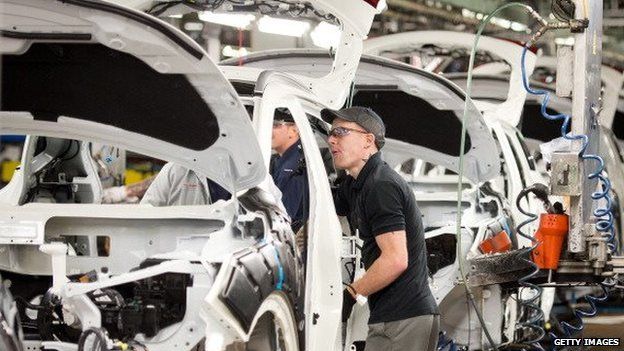Bank of England says keep interest rates low for now
- Published

Interest rates should remain low to avoid long-term economic stagnation, the chief economist at the Bank of England has said.
Andrew Haldane said in a speech he was downbeat over the UK economy because of weaker global growth, low wage growth and financial and political risks.
"Put in rather plainer English, I am gloomier," Mr Haldane said.
"This implies interest rates could remain lower for longer, certainly than I had expected three months ago."
'Agony and ecstasy'
Global markets have tumbled this week, with investors disconcerted at the lack of growth in Europe and especially Greece, the impact of Ebola, and worrying economic data from China and the US.
Previously, UK interest rates had been expected to rise early next year.
Mr Haldane made his remarks at a speech to local business leaders in Kenilworth, where he described the UK's economy as "writhing in both agony and ecstasy".
He said there were still plenty of reasons to be cheerful. Growth is set to be the fastest of any major economy this year and inflation and borrowing costs are low, he said.
However, he said the "reasons to be fearful" included productivity and wages, which had not risen.
"If there is genuine uncertainty about the path of the economy, the optimal policy response may be to avoid the worst outcomes," said Mr Haldane.
Sterling dropped 0.5% against the dollar following his remarks. Share trading on the London market has been volatile.
'Stormy waters'
Mr Haldane's caution about global economic prospects were echoed by the Chancellor, George Osborne, who told the BBC that the worldwide economy was "more unstable than it has been for some time".
Mr Osborne would not comment on Mr Haldane's remarks. But he said there were "a lot of global risks out there at the moment" affecting the international economy.
"Interest rates are entirely a matter for the independent Bank of England, the monetary policy committee there," Mr Osborne said.
He added: "I'll say this about the economy more generally - there are clearly a lot of global risks out there at the moment - we see these problems in the European economy, we've got this horrific disease Ebola in West Africa, all the problems in the Middle East and in the Ukrainian border.
"The global economy is more unstable than it has been for some time. That is all the more reason why in the UK we have to stick to the stability we have won."
He said it was important to "make sure Britain is well protected as we're in these stormy international economic waters".
Earlier this month, Mr Osborne warned that the eurozone slowdown will impact UK economy.